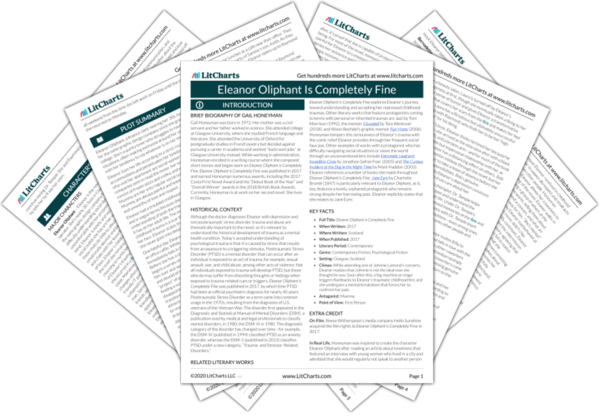When Mummy tells Eleanor to refocus her attention on her “project,” she encourages Eleanor to retreat into the safety of fantasy and delusion (represented by the musician) instead of making herself vulnerable by forging real relationships with people (represented by Raymond). At this point in the novel, it is a recurring pattern for Mummy to play on Eleanor’s insecurities and berate her immediately after she has had a good day. Mummy cuts Eleanor down to erase any progress Eleanor makes toward moving forward in her life.
